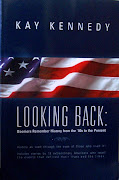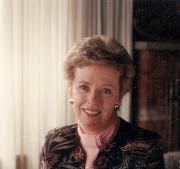Yesterday, the world tuned in to watch history being made in the United States as the first African-American President was elected. Barack Obama, the son of a white American mother and a black man from Kenya became the President-elect against overwhelming odds, but to the joy of so many millions of Americans, both black and white and every other color, all of whom felt he was the right man for the job at the right time regardless of his race.
This was a presidential contest that stirred emotions and excited voters. Even my seven-year-old great-niece was enthusiastic and certain Obama would be elected. At seven, I didn't even know what an election was. The response to this election, as well as the significance of the first African-American being elected, is a tale that will go down in the history books!
Maybe you had to be there in the sixties to realize how monumental this election is. We saw cities burn, and people march and die just so African Americans could win the right to vote. We saw two presidents push an agenda for equal rights, including the right to vote, but the first, President John F. Kennedy, was assassinated before his dreams could become reality. His successor, President Lyndon B. Johnson, would finally be the one to shepherd the bill through Congress. We heard Dr. Martin Luther King, Jr. give speeches urging non-violence as he led freedom marches that would draw attention to the lack of equality or voting rights for our black neighbors, but he wouldn’t live to see those rights happen because he was assassinated. We watched as another Kennedy, Bobby, ran for president with the message of equality plus ending the war in Vietnam, but he, too, was assassinated before his dreams could be realized.
It has been a long, hard struggle for those passionate for change from the beginning, and for those of us who saw our own views about the struggle for basic civil rights evolve. We watched as blacks embraced their right to vote and elected some qualified blacks to office, and as Jesse Jackson, another black civil rights leader, attempted his run for President, to no avail. He wept openly at last night's victory speech, maybe in sorrow that he couldn't have been elected, but more likely because he realized fully the depth of emotion behind and significance of Obama's election.
So now it has finally happened. The right man came along who could stir up the passion of Americans once again, and offer hope for a better world. He was elected President of all of us, even those who perhaps refused to vote for him because he was too black, although he was half-white and raised by white grandparents from Kansas, and of those with idealogical differences. Perhaps his greatest qualification for President, besides being extremely intelligent and seemingly imbued with integrity plus empathy for others, is that he was raised in the multi-cultural society of Hawaii, where every race manages to co-exist in harmony. Still, he would have been one of only a few African Americans living in Hawaii in the sixties, except for those military men and their families who happened to be stationed on the island of Oahu.
We lived in Hawaii in the sixties, and the lessons it offered in racial harmony were not lost on me, a girl who had been raised in a segregated South. Perhaps the lessons of equality also were not lost on Obama as one of a small minority of blacks, but in a society tolerant of “differences.” And yes, there was an undercurrent of racism even in Hawaii in the sixties, but it rarely bubbled to the surface then. Obama was surely aware of it, even there.
And for those of us Americans who have lived through the past eight years of the Bush administration and watched in horror as our country became morally and fiscally bankrupt, Obama’s election is a promise and hope for a new day. I for one realized, and expressed my beliefs even as Bush was running for president, that he would bankrupt our country because of his lack of basic understanding of the economy and the struggles of small business owners and middle class taxpayers. It was discussed among friends who feared the same outcome. I also realized early on that the Bush brand of “Christianity” was not even remotely related to the Christian beliefs I was raised with. As a child of the South I was taught to respect others, to treat everyone equally, to live a life that would make my parents and God proud, and that we should all live by the Ten Commandments. We took seriously the words of God’s Commandments.
The painful sting of the 2000 election for our family was that we, along with millions of other Americans, had our access blocked to the voting booth. Our right to vote was challenged in Court, then the right was restored by a Judge immediately before the election, but we were 1500 miles away and weren’t given time to apply for and receive our absentee ballot, then get it in on time. We also couldn't travel that far on such short notice. It hurt not to be able to exercise our right to vote, so we know how others feel who have their access blocked for any reason.
During the past eight years, we’ve seem civil rights eroded as the Bushies attempted to gather more power in the name of “protecting us from terrorism.” I could write about the Bush fight (or failure) against terrorism, but it has all been rehashed many times on news channels and in news magazines and papers. There’s no point in rehashing it again.
Some of us feared that an honest election would never again take place in the United States, as more evidence was revealed of vote tampering in the 2000 and 2004 elections. I watched in horror as a man explained in a documentary film how he had been contracted to design a program for the Diebold voting machines that would change election results, and claimed that his program was used in Florida in 2000 and in Ohio in 2004 to help Republicans win. Why his information has never received wide exposure is unknown, but I expect that we might hear more about it when the new administration takes office.
Or maybe we won’t. Maybe it’s time for the nation to join together as a team and let bygones be bygones. Still, none of us should become complacent about the possibilities of vote-rigging in future elections, especially with the spread of electronic voting machines. We must all educate ourselves about how elections work and the ways our votes can be stolen or manipulated. Hopefully our voting problems will be solved before the 2012 election. After all, every democratic country in the world does a better job of managing their elections better than we do, and one goal in the next four years should be to ensure that all Americans have free and equal access to vote.
Mainly, this is a time for healing, for renewing faith in our government. This is also a moment to reflect on how far this country has come in the past 40 years, since that historic election in 1968 when the country was being torn apart by racism and the Vietnam war, and a democratic convention was the scene of terrible violence and police brutality.
In reference to the advertising slogan made popular in the sixties, we have indeed come a long way, baby!
Wednesday, November 5, 2008
Subscribe to:
Posts (Atom)

